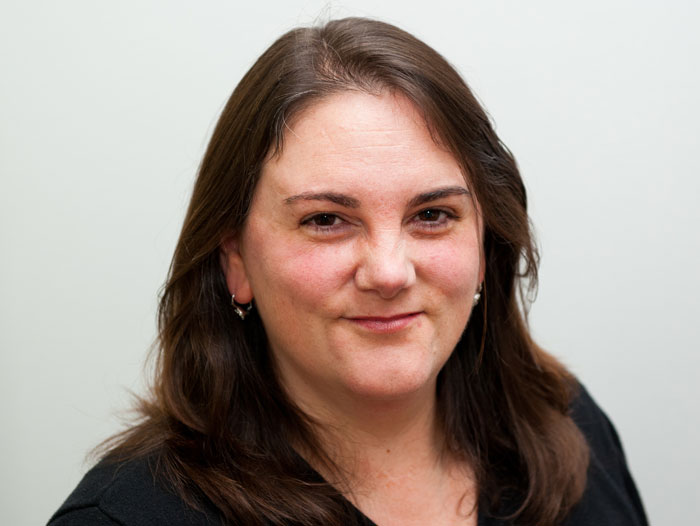Impossible Foods Hires Jessie Becker as Senior Vice President of Marketing
October 18, 2019 | 6 min to read

REDWOOD CITY, Calif.– Impossible Foods today announced the hiring of Jessie Becker in the newly created role of Senior Vice President of Marketing.
Becker will lead the B2B and B2C marketing, insights and brand marketing teams at Impossible Foods, effective immediately. She reports to Impossible Foods’ President Dennis Woodside, a tech industry executive who joined the company in March.
Just last month, the Impossible™ Burger made its worldwide debut in grocery stores at all 27 outlets of Gelson’s Markets in Southern California, all 100 outlets of Wegmans in the Northeast and two Fairway locations in Manhattan — the first time that the general public has been able to buy and experience the Impossible Burger at home. The results have been astounding. Impossible Burger immediately rocketed to the No. 1 position among all packaged goods sold at some of America’s favorite grocery stores — and has remained a top performer ever since.
“I’m thrilled to join Impossible Foods at such a significant inflection point for the company as it embarks on unprecedented growth and new channel launches,” Becker said. “It’s an incredible opportunity to build the plant-based food category with world-class marketing — while having a profound impact on our planet.”
Becker joins Impossible Foods from Google, where she served as Director of Marketing. Prior to Google, Becker was Chief Marketing Officer at Optimizely, a B2B software company.
Before that, Becker spent 12 years at Netflix, starting in 2000 as one of the first people hired in the marketing department and rising to interim Chief Marketing Officer during a period of breakout growth. At Netflix, Becker was responsible for recruiting millions of consumers to the subscription content service and accelerating Netflix’s expansion into more than 50 countries, using creative digital acquisition tactics and partnerships with device manufacturers and retailers.
Becker holds a Bachelor’s in History from the University of Pennsylvania, a Bachelor’s in Economics from The Wharton School and an MBA from Stanford University.
Scorching demand
The Impossible Burger is served in more than 17,000 restaurants in all 50 states and in nearly every type of cuisine — from burgers, tacos and pizza to poke sushi burritos.
The Impossible Burger is now America’s most popular late-night delivery snack, according to Grubhub’s “State of the Plate” report, with delivery sales surging 529% in the first half of 2019 — proof that the product satisfies the midnight cravings of carnivores on the prowl for chow.
This summer, Impossible Foods announced a co-manufacturing collaboration with global food provider OSI Group, one of the largest food producers in the world. OSI has already begun to produce the Impossible Burger, adding short-term capacity to Impossible Foods’ plant in Oakland, Calif. OSI will continue to expand production of Impossible Foods’ flagship product throughout 2019 and thereafter.
The Impossible Slider at White Castle is considered one of America’s best fast-food burgers, and Impossible Burger mentions on Yelp are on fire. Political commentator and Texas cattle rancher Glenn Beck couldn’t tell the difference between the Impossible Burger and ground beef from cows in a side-by-side taste test, and the Washington Post called Impossible’s plant-based burger a “wake-up call to the meat industry.”
In April, the world’s second largest burger chain, Burger King, debuted the Impossible Whopper in a regional test in St. Louis. The regional test of the Impossible Whopper at Burger King restaurants in St. Louis went exceedingly well; in August, the Miami-based restaurant chain rolled out the Impossible Whopper to 7,200 U.S. restaurants nationwide.
Stay tuned for more news — including the next retail launches — by visiting impossiblefoods.com/media and on social media.
About Impossible Foods:
Based in California’s Silicon Valley, Impossible Foods makes delicious, nutritious meat and dairy products from plants — with a much smaller environmental footprint than meat from animals. The privately held company was founded in 2011 by Patrick O. Brown, M.D., Ph.D., Professor Emeritus of Biochemistry at Stanford University and a former Howard Hughes Medical Institute investigator. Investors include Khosla Ventures, Bill Gates, Google Ventures, Horizons Ventures, UBS, Viking Global Investors, Temasek, Sailing Capital, and Open Philanthropy Project.
